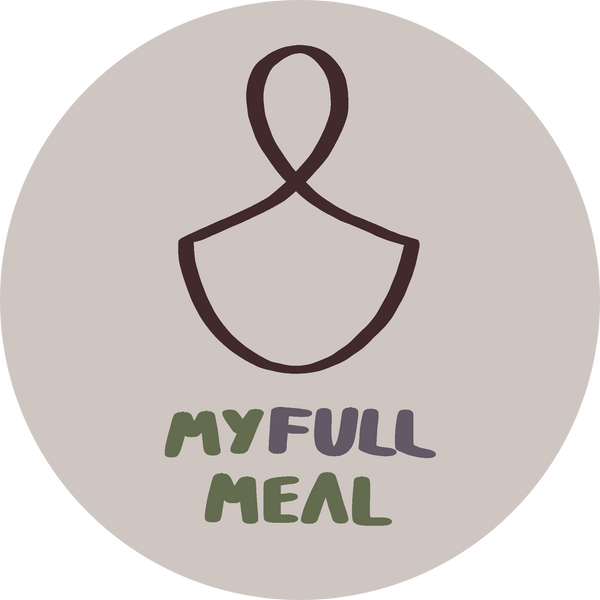Are you a person with a good mood, eats well, eats a lot, eats a lot, eats everything, can eat protein, eats delicious fat, has a plump figure, what friends call you The last stage before obesity Weight isn't easy to gain, but it isn't easy to lose either.
Especially if you want to lose weight. Then try eating according to those who are thinner (than us), such as eating vegetables and fruits instead of main meals. It turned out that the weight had increased. Or sometimes you accidentally eat a lot of carbohydrates. It turned out that Just addicted to flour and desserts.
If it looks similar to something like this That means your digestive system is protein-rich and is not eating properly.
William L. Wolcott, food scientist and food therapist Metabolic typing expert The author of the book The Metabolic Typing Diet gives an example of one of his patients named Sara Hennessy, who takes care of her health according to general advice And in the end it turned out that she was sick, reflecting that Health care for people without knowledge Follow the general information found in various media is not a "smart" way to prevent illness caused by behavior at all.
Sara eats healthy food. No matter what is good, she will find and consume everything. Drink only pure water and eat expensive top-notch dietary supplements (arguably the best) on the market
Go into details in each section. Start with healthy food She chooses fresh fruits and vegetables. Whole grains Lean Meat However, no one told her about eating foods from all food groups in the correct proportions that the body needs.
After many years, she became ill and came to see Mr. William. which when doing the questionnaire It was found that the body lacked many nutrients. Due to the consumption of certain nutrients (which I heard was good) for a long time Resulting in the metabolic system or the digestive system and metabolism are greatly out of balance Affects the glands and organ systems to not work efficiently. and ends up with the immune system becoming ineffective
Sara's symptoms include fatigue, lack of energy, allergies to various foods and chemicals, joint pain, headaches, occasional acid reflux, frequent dizziness, frequent bladder infections, and depression. She suffers from symptoms and treating these disorders through various methods for decades
Make sure that Yes, definitely a protein eater.
Follow this link. There will be a questionnaire to answer to find out what kind of foodie you are.
https://firstthaintp.com/check-your-digestive-system/
Answer C the most. Definitely a protein line.
Because of the digestive system of this group of people Can digest food very quickly, eats well (sometimes eats too much), wants to eat fried, salty food, but if you avoid eating foods such as protein, it's good. or meat Come eat foods such as carbohydrates or starches. They will quickly become addicted to eating starch. As a result, blood sugar levels easily create health problems, such as being more at risk for hypoglycemia or hypoglycemia than other groups. They gain weight because they eat starch and sugar faster than other groups.
However, if you want to reduce such symptoms (Especially obesity or weight gain) by fasting Or use a recipe for eating certain fruits. In addition to not being effective Some people also cause weight gain.
In addition, if you eat symptoms that are different from your original digestive system characteristics People in this group also tend to have emotional problems. When energy is low, such as drowsiness, sadness, blurry, or may feel strange, including restlessness, agitation, heart palpitations, trembling hands until the next meal is eaten. So you will have better symptoms.
Foods you should eat for protein
Food proportions for protein eaters are good fat and good protein percentage. 70, carbohydrates should be consumed only 30 percent because the digestive system and metabolism work quickly. Therefore need good fats and good protein to help reduce the metabolic rate.
And when you want to lose weight These people also need foods that contain good fats and protein. To help reduce the accumulation of fat in the body, eating good fats and protein will help reduce the risk of heart disease. Diseases related to blood sugar levels Diseases related to the digestive system and metabolism osteoporosis and other chronic diseases that are caused by abnormalities in the digestive system and metabolism (metabolic imbalance)
The food that Mr. William L. Wolcott recommends for people with protein digestion is:
Focus on eating good protein, fish, nuts, seafood, and good fats, including plants that contain omega 3, omega 6, and omega 9, as well as various types of fish. However, this group of people must eat good protein and good fats with every meal.
Because food is digested quickly People with this type of digestive system need to have snacks. almonds Sunflower seeds and various nuts on the side.
As for flour and bread foods, People who have this type of subsystem It should be eaten in an unpolished way. Eat unsweetened fruit Eat vegetables that contain small amounts of carbohydrates. This is because the body reacts quickly to this type of food.
In conclusion, you must limit your intake of carbohydrate foods. Including sweet fruits such as apples, ripe bananas, longan, longkong, and rambutan.
However, if you want to drink vegetable and fruit smoothies according to the trend. Choose one that isn't sweet, and mix in carrots, celery, and spinach. You can drink it only 4-5 times a week. However, you should avoid fruit juice. Both boxed and freshly squeezed
People who have this type of subsystem You can eat unlimited amounts of good fat. Plus, they have a body that's adapted to handle oils and fats well, so they don't experience bloating or other abnormal symptoms when consuming fats. Therefore, one must be careful not to let the body receive too much. and should consume food that comes from chemical-free sources Or is it only organic?
Foods to avoid For protein
- Alcohol is considered a poison to the body. It doesn't matter what kind of subsystem you have.
- Caffeine. Drinking beverages that contain caffeine. You should limit yourself to 2 cups a day because caffeine interferes with the glands that control energy use. If you drink too much It will make the gland work worse. and have a negative effect on long-term health
- Sugar in various forms, including glucose, lactose, fructose, and sucrose, both from adding sugar to food. or from plants that contain such sugars
- Foods with a high GI (GI or Glycemic Index) because this group of foods stimulates the secretion of insulin. However, people who have these sub-characteristics Some people will have a pancreas whose function in producing insulin is not as strong as other people's. Therefore, there is a risk of insulin resistance. (which is the cause of diabetes) more if consuming foods with high GI values
- Foods that contain phytic acid and oxalate acids such as rice and soybeans, which will interfere with the absorption of nutrients. However, by the principles of cooking food according to culture (culture food), especially the culture of people in the Asian region The ancient people brought rice Or soybeans soaked in water overnight, always discard the water before cooking. To reduce the amount of phytic acid and oxalate acid.
- Foods that contain gluten Because gluten is a protein that is difficult to digest. When entering the digestive system Therefore, they are at risk for various health problems such as allergies, psychiatric diseases, and excessive growth of bad microorganisms or fungi. Foods that contain gluten include wheat, millet, and barley.
12 steps to adjust yourself
Eat right.
- For the first 5-7 days, eat these foods as carefully as possible: grains, cereals, breads, sweets, fruits and root vegetables, as well as dairy products.
- Eat as much protein and good fat as you want.
- On days 5-7, start eating a variety of vegetables that don't have a lot of starch, such as kale, morning glory, bok choy, Chinese cabbage, cilantro, asparagus, celery, spinach, and various mushrooms. Start by eating small amounts first. Then gradually increase
- Eat each meal until you are full. without having to reach the point of choking
- You can eat snacks. But it must be a group of beans.
- If you are a person who has the characteristic of digesting protein You will feel good within the first week. Able to not eat food for more than 4-5 hours. Not craving dessert. and feel powerful
- Within this first week People with a protein digestion disorder may feel irritable, easily irritated, and crave sweets. If this is the case, add various green leafy vegetables to the same amount of protein.
- If you still don't feel better. Try adding carbohydrate-rich vegetables such as corn and potatoes to your dinner.
- If you eat vegetables that contain carbohydrates, you feel good. Try adding just one tablespoon to lunch or breakfast.
- If you feel good, eat brown rice or whole wheat bread instead of those carb-laden vegetables.
- From there, try adding brown rice or whole wheat bread gradually into your diet.
- Add carbohydrates to your diet Until you come back to feeling tired, depressed, sad, mood swings, and craving sweets. At this point, reduce carbohydrates to a point where there are no negative feelings above.
And that is the right amount of food for us.
Reference Metabolic Typing Diet by Mr. William L. Wolcott and Ms. Trish Fahay.

